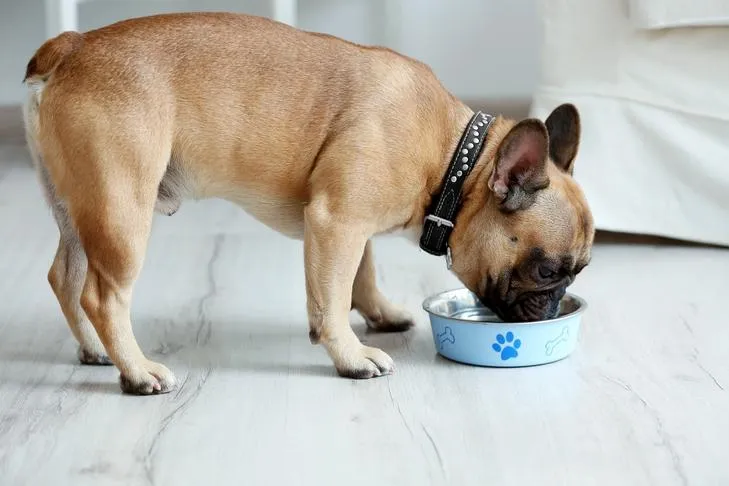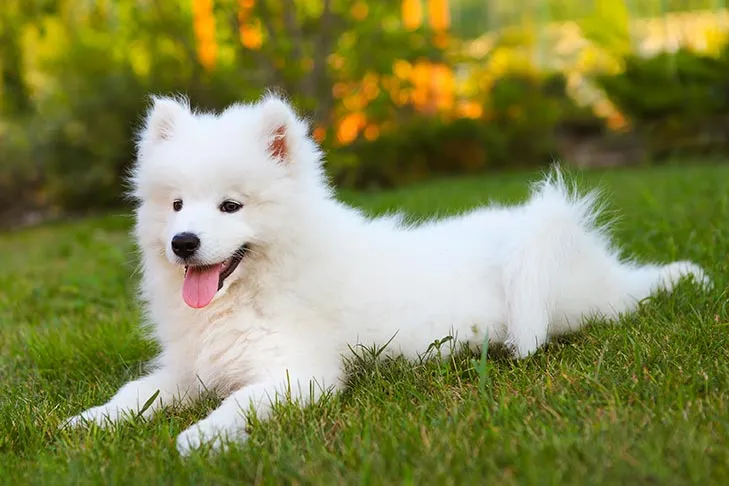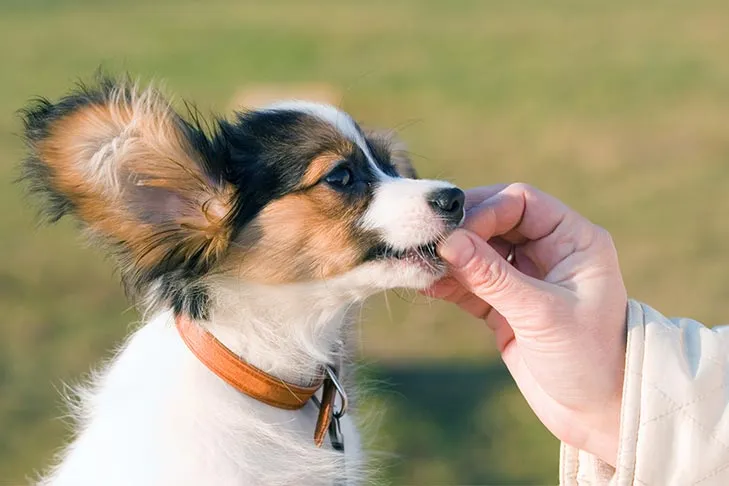As loving pet parents, we often wonder which human foods are safe for our canine companions to enjoy. While our dogs gaze up at us with those irresistible puppy-dog eyes, it’s crucial to know what’s safe and what could potentially cause harm. Understanding the nutritional needs and potential risks associated with various human foods is essential for maintaining your dog’s health and happiness. This guide from Dog Care Story provides detailed insights into common human foods that are generally considered safe for dogs, helping you make informed decisions about their diet.
Feeding your dog the right diet is foundational to their well-being, and incorporating certain human foods can offer beneficial nutrients and enjoyable treats. However, moderation is key, and it’s always best to consult your veterinarian before introducing new foods, especially if your dog has any pre-existing health conditions or allergies. Knowing what food is ok for dogs to eat can enrich their diet and strengthen your bond.
Human Foods Generally Safe for Dogs
Here’s a list of common human foods that, when prepared correctly and offered in moderation, can be a safe addition to your dog’s diet:
Bread
Small amounts of plain bread are generally harmless for your dog, provided it contains no spices, especially not raisins, which are highly toxic. While it offers no significant health benefits and can be high in carbohydrates and calories, homemade bread without preservatives is a better option than store-bought. However, it’s often best to avoid it altogether due to its lack of nutritional value.
Cashews
Cashews can be given to dogs in small quantities. They contain beneficial nutrients like calcium, magnesium, antioxidants, and proteins. However, even though they have less fat than some other nuts, overfeeding can lead to weight gain. Always ensure cashews are unsalted before offering them as an occasional treat.
Cheese
Dogs can enjoy cheese in small to moderate amounts. Unless your dog is lactose intolerant, which is a rare but possible condition, cheese can serve as a delightful treat. Opt for lower-fat varieties such as cottage cheese or mozzarella, as many types of cheese are high in fat. Many dogs also appreciate specialized dried cheese chews.
 An All-American Dog resting its head on a kitchen table, looking at cheese.
An All-American Dog resting its head on a kitchen table, looking at cheese.
Coconut
This versatile fruit contains lauric acid, known for its potential to help combat bacteria and viruses. Coconut can also aid in improving bad breath and may help alleviate certain skin conditions like hot spots, flea allergies, and general itchy skin. Both coconut milk and coconut oil are safe for dogs. Just be sure to remove the furry outer shell, as it can pose a choking hazard.
Corn
Corn is a common ingredient in many commercial dog foods, indicating its safety for canine consumption. However, the corn cob itself is indigestible and can cause intestinal blockages. Therefore, if you’re sharing corn, always ensure it is removed from the cob.
Eggs
Cooked eggs are safe for dogs and provide an excellent source of protein, which can also be soothing for an upset stomach. It’s crucial that eggs are fully cooked, as raw egg whites can interfere with biotin absorption, potentially leading to a deficiency. Always cook eggs thoroughly before offering them to your pet.
Fish
Fish offers a wealth of good fats and amino acids, providing a healthy boost for your dog. Salmon and sardines are particularly beneficial. Salmon is rich in vitamins and protein, while sardines offer soft, digestible bones for extra calcium. For all fish, except sardines, it is essential to meticulously remove all tiny bones, as they can be a choking hazard or cause internal injury. Always feed fully cooked and cooled fish, never raw or undercooked, and limit fish intake to no more than twice a week.
Ham
While not the healthiest option due to its high sodium and fat content, ham is generally safe for dogs in very small amounts. Sharing a tiny piece occasionally is acceptable, but it should not become a regular part of their diet.
 A French Bulldog happily eating from a bowl at home.
A French Bulldog happily eating from a bowl at home.
Honey
Honey is rich in numerous nutrients, including vitamin A, potassium, calcium, magnesium, copper, and various antioxidants. Small amounts of local honey may even help dogs with seasonal allergies by gradually introducing small quantities of pollen to their system, potentially building immunity. Beyond consumption, honey can also be applied topically to minor burns and superficial cuts.
Milk
Dogs can drink milk, but caution is advised. Some dogs are lactose-intolerant and may not digest dairy products well, leading to digestive upset. While a small amount of milk is generally okay, owners should monitor their dog for symptoms of lactose intolerance and might consider offering water instead.
Peanut Butter
Peanut butter can be a fantastic source of protein for dogs, packed with heart-healthy fats, vitamins B and E, and niacin. The healthiest choice is raw, unsalted peanut butter. It is critical to carefully read the label to ensure the product does not contain xylitol, an artificial sweetener highly toxic to dogs. Knowing what can my dog eat and not eat is vital, especially concerning hidden dangers like xylitol in popular human foods.
Peanuts
Unlike almonds, peanuts are safe for dogs to eat and are a good source of healthy fats and proteins. However, like cashews, they should be given in moderation to avoid excessive fat intake, which could lead to pancreatic issues. Always choose unsalted peanuts, as too much salt can be detrimental to a dog’s system.
Popcorn
Plain, unsalted, unbuttered, air-popped popcorn can be an acceptable treat for dogs in moderation. It provides riboflavin and thiamine, which support eye health and digestion, along with small amounts of iron and protein. Ensure all kernels are fully popped, as unpopped kernels can pose a choking hazard.
Pork
Pork is a highly digestible protein source, rich in amino acids, and may be less likely to cause allergic reactions in some pets compared to other meats. However, it does contain more calories per pound than certain other meats. Always ensure it is cooked thoroughly and served without excessive fat, skin, seasonings, onions, or garlic.
 A fluffy Samoyed puppy laying peacefully in green grass outdoors.
A fluffy Samoyed puppy laying peacefully in green grass outdoors.
Salmon
As highlighted earlier, fully cooked salmon is an excellent source of protein, beneficial fats, and amino acids, supporting joint and brain health and boosting the immune system. However, raw or undercooked salmon can harbor parasites that cause severe illness, including vomiting, diarrhea, dehydration, and potentially death. Thorough cooking eliminates these dangerous parasites.
Shrimp
A small serving of shrimp occasionally is acceptable for your dog, but only if they are fully cooked and completely shelled (including the tail, head, and legs). Shrimp are rich in antioxidants, vitamin B-12, and phosphorus, while being low in fat, calories, and carbohydrates. Understanding what meat is dangerous for dogs helps ensure you prepare safe and healthy meals for your pet.
Tuna
Dogs can consume tuna in small quantities. When given in moderation, cooked, fresh tuna provides an excellent source of omega-3 fatty acids, which benefit heart and eye health. Canned tuna, while acceptable in small amounts, contains mercury and sodium, which should be limited. Opt for tuna prepared in water, not oil, and ensure it contains no added spices.
Turkey
Cooked turkey is safe for dogs, but it’s essential to remove any excess fat and skin. Always check carefully for bones, as poultry bones can splinter during digestion, leading to blockages or internal tears. Avoid feeding any turkey prepared with excessive salt, seasonings, onions, or garlic.
Wheat or Grains
The notion that dogs must be grain-free is a misconception; grains are perfectly fine for most dogs. In fact, grains like wheat and corn are valuable sources of protein, essential fatty acids, and fiber. If your dog has specific allergies, avoiding certain grains might be necessary, but this should be determined by your veterinarian.
Yogurt
Plain yogurt is a healthy and acceptable snack for dogs. The active bacteria in yogurt provide probiotics, which can help strengthen the digestive system for dogs who can digest dairy. Always choose plain yogurt, avoiding any with added sugars or artificial sweeteners, especially xylitol.
 A small Papillon puppy gently taking a treat from a human hand.
A small Papillon puppy gently taking a treat from a human hand.
Important Considerations and Foods to Avoid
While this list covers many safe options, it’s equally important to be aware of foods that are dangerous or even toxic to dogs. Some human foods can cause serious illness or even be fatal. For a comprehensive overview, it’s essential to refer to a detailed what not to feed dogs list and understand what fruits can my dog not eat. Always keep these harmful foods out of reach and consult your veterinarian immediately if you suspect your dog has ingested something toxic. Your dog’s health is paramount, and responsible feeding practices are a key part of their care.
